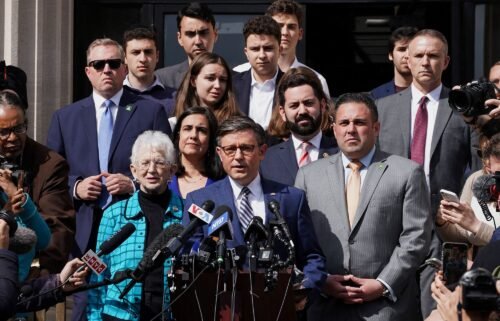iPhones, Switches and toys on the table in US-China trade talks

President Donald Trump has threatened tariffs on about $160 billion of Chinese-made goods starting this weekend.
The 15% tariff would hit iPhones and other cell phones, laptops, tablets, video game consoles, a variety of other electronic devices, and toys not already affected by earlier tariffs.
The duties are set to go into effect at midnight Sunday, but Trump could still delay implementing the tariffs or call them off altogether as negotiations between Washington and Beijing continue.
If the new round goes into effect, nearly all Chinese imports into the United States will be under tariff. Trump has imposed several rounds of duties on goods over the past two years as his negotiating team tries to strike a broad trade agreement with Beijing that would address unfair practices like intellectual property theft.
Currently, there are tariffs on about $350 billion worth of Chinese imports. Earlier tariff rounds were meant to spare American consumers, and mostly impacted industrial goods and machinery used by manufacturers — but still included some consumers goods like luggage and baseball hats. In September, the most recent round, the tariffs hit more than 80% of the clothing and accessories that the United States buys from China.
One recent report said Trump’s tariffs on Chinese-made products could cost the average American household $600 a year or — if the December round goes into effect — up to $1,000 a year. It would hit not only electronic devices and toys, but also a variety of other items like Christmas decorations, office and schools supplies, and frozen Alaskan pollock fillets.
Tariffs are paid by US importers, who can decide to absorb the cost or pass it on to retailers or consumers. US importers have paid an additional $42 billion in tariffs since February 2018, according to an analysis of government data by a free-trade coalition called Tariffs Hurt the Heartland.
Several studies have found that the uncertainty in trade policy has been a drag on economic growth. The Tax Foundation expects that Trump’s tariffs will reduce US economic output, income and employment in the long run.



